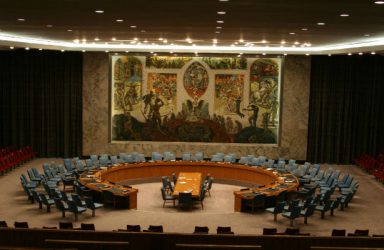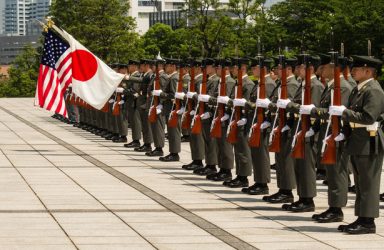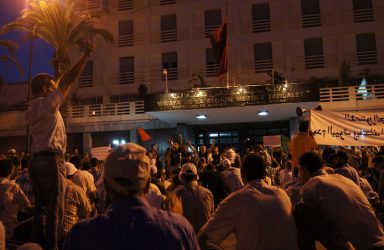Responsibility to Protect and its Neo-Imperialist Implications
Any form of humanitarian intervention will seek to impose a one-sided narrative of stability and security, which are, by default, culturally and regionally not uniform.
The Significance of the US War on Terror Policy for the Japan-US Relationship
Japan’s participation in the War on Terror might have played an important role in making the Japan-U.S. relationship a global alliance.
Domestic Violence as Everyday Terrorism: Bride Kidnapping in Kyrgyzstan
Seeing bride kidnapping and domestic violence as everyday terrorism unpacks the political nature of so-called “private” phenomena and how they reify patriarchal society.
What are the Defining Characteristics of Insurgency from Prehistory to Ca.1975?
Although the nature of every insurgency is reflective of its own unique socio-economic, political, and cultural context, a number of defining features can be discerned.
Arms Control and Cooperative Security: A Regional Perspective
Cooperative security is a feasible concept in a regional and even a global context, but its success is in varying degrees of progress and is still in ambiguous standing.
A Reassessment of the Munich Agreement
The significance today of reassessing the 1938 Munich Agreement lies in the frequent uses of the terms Munich and Appeasemen” with regard to the Iranian nuclear program.
Is Human Security Part of the International Security Agenda?
Human security is falling short of the developmental, humanitarian impact that it had intended, despite being entrenched on the international security agenda.
Can Non-Violent Resistance Be an Effective Strategy for Challenging State Power?
Examining the Arab Uprisings in 2011, the effectiveness of non-violent resistance movements for challenging state power is evinced.
Are Military Interventions Inevitably Doomed to Backfire?
Military interventions are always liable to backfire and cause unintended harm to an intervening state on various grounds, such as ideological, political, and economic.
Cooperation or Competition? External Support and Interrebel Dynamics
Non-state armed groups who receive fungible resources, such as funding or weapons, are more likely to experience interrebel fighting and less likely to be in an alliance.













